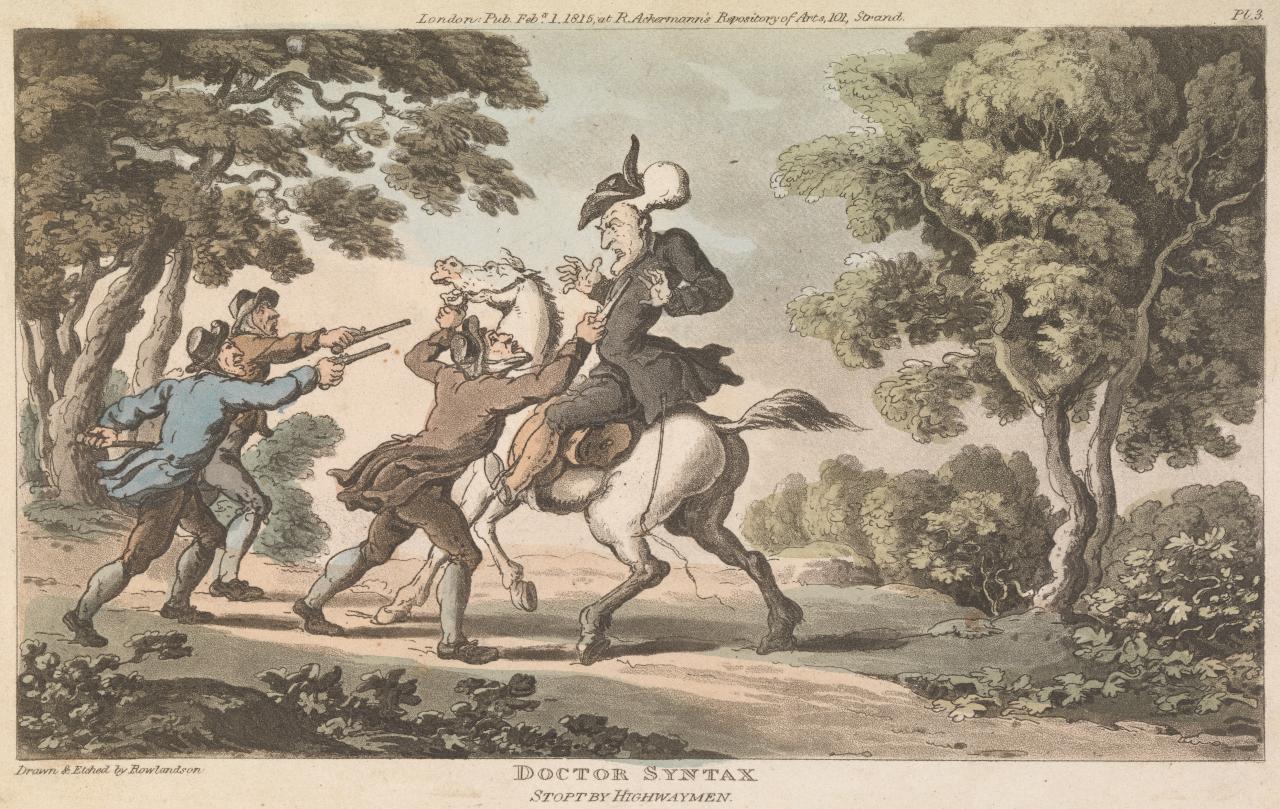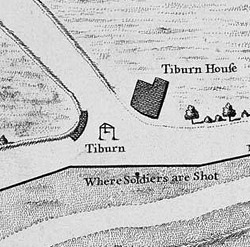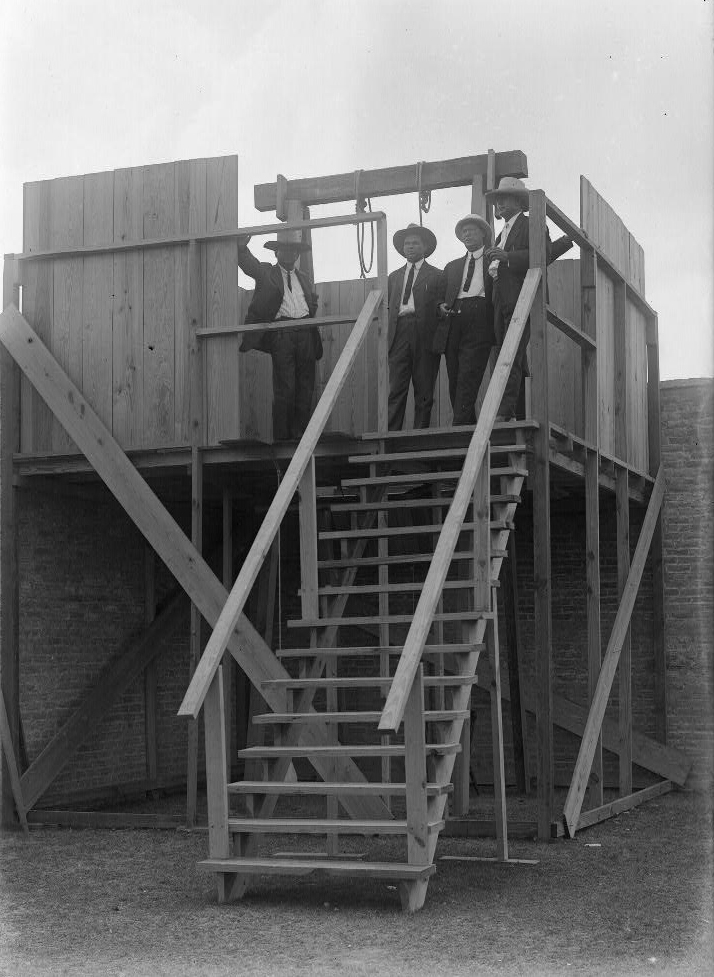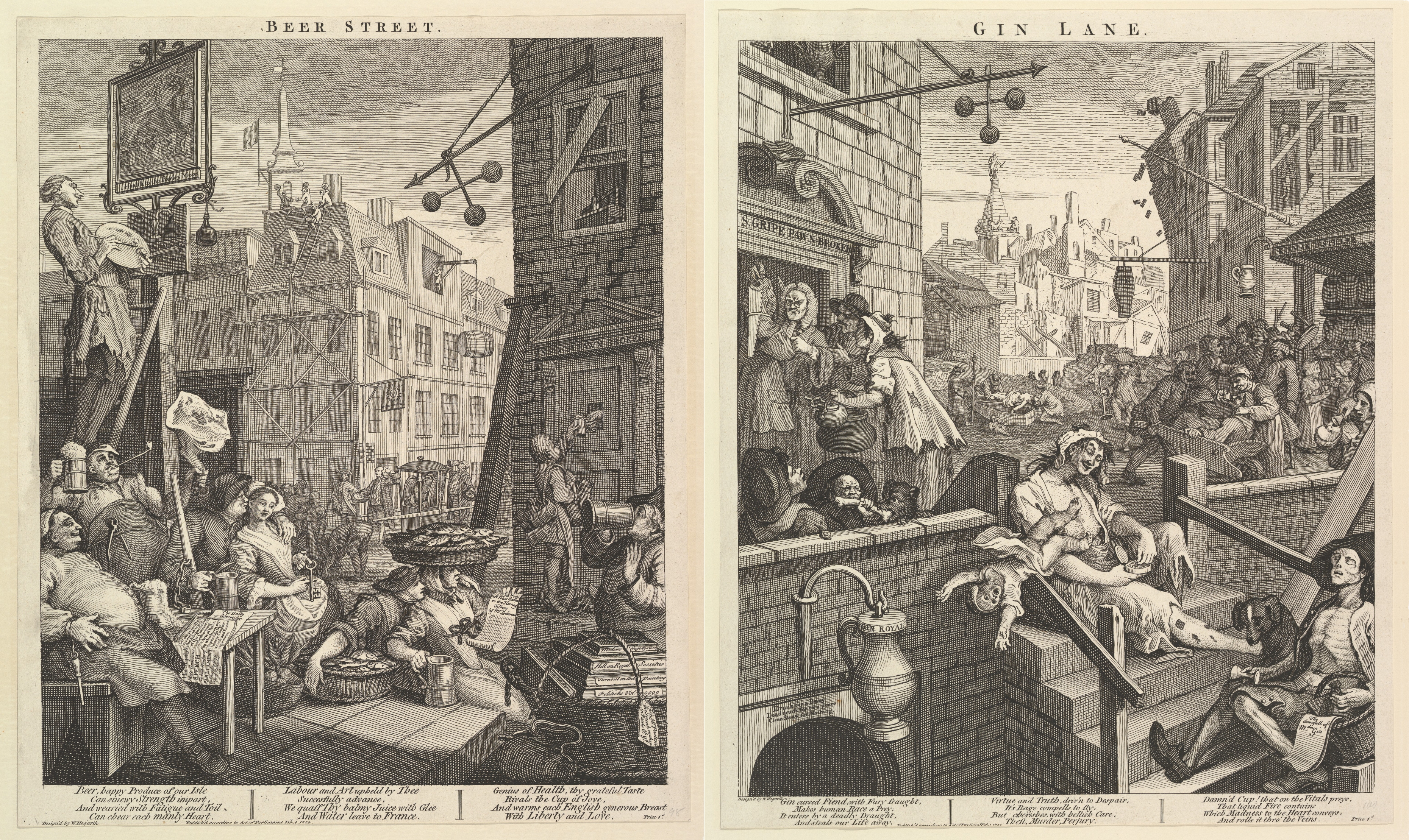|
Footpad
In archaic terminology, a footpad is a robber or thief specialising in pedestrian victims. The term was used widely from the 16th century until the 19th century, but gradually fell out of common use. A footpad was considered a low criminal, as opposed to the mounted highwayman who in certain cases might gain fame as well as notoriety. Footpads operated during the Elizabethan era and until the beginning of the 19th century. Etymology According to the ''American Heritage Dictionary'', the origin of the term is not entirely clear, but it may be a concatenation of ''foot'' and the word ''pad'', related to ''path.'' This would indicate a robber who is on foot, as opposed to his equestrian counterpart. Robbing Footpads always operated on foot and robbed people by first putting them in fear. Social and economic conditions, the high cost of horses, and their precarious state led them to commit robberies in the streets. Criminals found it safer and advantageous to move in darkness so ... [...More Info...] [...Related Items...] OR: [Wikipedia] [Google] [Baidu] |
Footpads
''Footpads'' is an 1895 British short silent drama film, directed by Robert W. Paul, featuring a top-hatted pedestrian against a rainy London backdrop, who is assaulted by three footpads and rescued by a passing policeman. The "atmospheric" film, "is chiefly of interest for its imaginative approach to background décor," where according to Michael Brooke of BFI Screenonline, "some effort has been made towards establishing a sense of realism." Roland-François Lack of University College London points out that this painted backdrop looks like "a hybrid of Trafalgar Square, with its electric advertisement for Bovril Bovril is the trademarked name of a thick and salty meat extract paste similar to a yeast extract, developed in the 1870s by John Lawson Johnston. It is sold in a distinctive bulbous jar, and as cubes and granules. Bovril is owned and distribut ..., and Piccadilly Circus, with the advertisement for Mellin's Food", but has discovered that it in fact represents Lud ... [...More Info...] [...Related Items...] OR: [Wikipedia] [Google] [Baidu] |
Thief
Theft is the act of taking another person's property or services without that person's permission or consent with the intent to deprive the rightful owner of it. The word ''theft'' is also used as a synonym or informal shorthand term for some crimes against property, such as larceny, robbery, embezzlement, extortion, blackmail, or receiving stolen property. In some jurisdictions, ''theft'' is considered to be synonymous with ''larceny'', while in others, ''theft'' is defined more narrowly. Someone who carries out an act of theft may be described as a "thief" ( : thieves). ''Theft'' is the name of a statutory offence in California, Canada, England and Wales, Hong Kong, Northern Ireland, the Republic of Ireland, and the Australian states of South Australia Theft (and receiving). and Victoria. Theft. Elements The ''actus reus'' of theft is usually defined as an unauthorized taking, keeping, or using of another's property which must be accompanied by a ''mens rea'' of dishonesty ... [...More Info...] [...Related Items...] OR: [Wikipedia] [Google] [Baidu] |
John Fielding
Sir John Fielding (16 September 1721 – 4 September 1780) was a notable English magistrate and social reformer of the 18th century. He was also the younger half-brother of novelist, playwright and chief magistrate Henry Fielding. Despite being blinded in a naval accident at the age of 19, John set up his own business and, in his spare time, studied law with Henry. Appointed Henry's personal assistant in 1750, John helped him to root out corruption and improve the competence of those engaged in administering justice in London. They formed the first professional police force, the Bow Street Runners. Through the regular circulation of a police gazette containing descriptions of known criminals, Fielding also established the basis for the first police criminal records department. When Henry died in 1754, John was appointed magistrate at Bow Street in his place, becoming renowned as the "Blind Beak", and allegedly being able to recognize three thousand criminals by the sounds ... [...More Info...] [...Related Items...] OR: [Wikipedia] [Google] [Baidu] |
Robert W
The name Robert is an ancient Germanic given name, from Proto-Germanic "fame" and "bright" (''Hrōþiberhtaz''). Compare Old Dutch ''Robrecht'' and Old High German ''Hrodebert'' (a compound of '' Hruod'' ( non, Hróðr) "fame, glory, honour, praise, renown" and ''berht'' "bright, light, shining"). It is the second most frequently used given name of ancient Germanic origin. It is also in use as a surname. Another commonly used form of the name is Rupert. After becoming widely used in Continental Europe it entered England in its Old French form ''Robert'', where an Old English cognate form (''Hrēodbēorht'', ''Hrodberht'', ''Hrēodbēorð'', ''Hrœdbœrð'', ''Hrœdberð'', ''Hrōðberχtŕ'') had existed before the Norman Conquest. The feminine version is Roberta. The Italian, Portuguese, and Spanish form is Roberto. Robert is also a common name in many Germanic languages, including English, German, Dutch, Norwegian, Swedish, Scots, Danish, and Icelandic. It can be use ... [...More Info...] [...Related Items...] OR: [Wikipedia] [Google] [Baidu] |
Moll Flanders
''Moll Flanders'' is a novel by Daniel Defoe, first published in 1722. It purports to be the true account of the life of the eponymous Moll, detailing her exploits from birth until old age. By 1721, Defoe had become a recognised novelist, with the success of ''Robinson Crusoe'' in 1719. His political work was tapering off at this point, due to the fall of both Whig and Tory party leaders with whom he had been associated; Robert Walpole was beginning his rise, and Defoe was never fully at home with Walpole's group. Defoe's Whig views are nevertheless evident in the story of Moll, and the novel's full title gives some insight into this and the outline of the plot. It is usually assumed that the novel was written by Daniel Defoe, and his name is commonly given as the author in modern printings of the novel. However, the original printing did not have an author, as it was an apparent autobiography. The attribution of ''Moll Flanders'' to Defoe was made by bookseller Francis Noble ... [...More Info...] [...Related Items...] OR: [Wikipedia] [Google] [Baidu] |
Colonel Jack
''Colonel Jack'' is a novel by Daniel Defoe, first published in 1722. The considerably longer title under which it was originally published is ''The History and Remarkable Life of the truly Honourable Col. Jacque, commonly call'd Col. Jack, who was Born a Gentleman, put 'Prentice to a Pick−Pocket, was Six and Twenty Years a Thief, and then Kidnapp'd to Virginia, Came back a Merchant; was Five times married to Four Whores; went into the Wars, behav'd bravely, got Preferment, was made Colonel of a Regiment, came over, and fled with the Chevalier, is still abroad compleating a Life of Wonders, and resolves to dye a General.'' The picaresque novel can be considered as a crime fiction, along with some of Defoe's other works such as ''Moll Flanders'' (1722) and '' Roxana: The Fortunate Mistress'' (1724).Gladfelder 2009, p. 64. It shares many plot elements and themes with ''Moll Flanders'', the novels being published only eleven months apart. In common with many of Defoe's other works ... [...More Info...] [...Related Items...] OR: [Wikipedia] [Google] [Baidu] |
Tyburn Tree
Tyburn was a manor (estate) in the county of Middlesex, one of two which were served by the parish of Marylebone. The parish, probably therefore also the manor, was bounded by Roman roads to the west (modern Edgware Road) and south (modern Oxford Street), the junction of these was the site of the famous Tyburn Gallows (known colloquially as the "Tyburn Tree"), now occupied by Marble Arch. For this reason, for many centuries, the name Tyburn was synonymous with capital punishment, it having been the principal place for execution of London criminals and convicted traitors, including many religious martyrs. It was also known as 'God's Tribunal', in the 18th century. Tyburn took its name from the Tyburn Brook, a tributary of the River Westbourne. The name Tyburn, from Teo Bourne, means 'boundary stream',Gover, J. E. B., Allen Mawer and F. M. Stenton ''The Place-Names of Middlesex''. Nottingham: English Place-Name Society, The, 1942: 6. but Tyburn Brook should not be confused with ... [...More Info...] [...Related Items...] OR: [Wikipedia] [Google] [Baidu] |
Penal Transportation
Penal transportation or transportation was the relocation of convicted criminals, or other persons regarded as undesirable, to a distant place, often a colony, for a specified term; later, specifically established penal colonies became their destination. While the prisoners may have been released once the sentences were served, they generally did not have the resources to return home. Origin and implementation Banishment or forced exile from a polity or society has been used as a punishment since at least the 5th century BC in Ancient Greece. The practice of penal transportation reached its height in the British Empire during the 18th and 19th centuries. Transportation removed the offender from society, mostly permanently, but was seen as more merciful than capital punishment. This method was used for criminals, debtors, military prisoners, and political prisoners. Penal transportation was also used as a method of colonization. For example, from the earliest days of English ... [...More Info...] [...Related Items...] OR: [Wikipedia] [Google] [Baidu] |
Tyburn
Tyburn was a manor (estate) in the county of Middlesex, one of two which were served by the parish of Marylebone. The parish, probably therefore also the manor, was bounded by Roman roads to the west (modern Edgware Road) and south (modern Oxford Street), the junction of these was the site of the famous Tyburn Gallows (known colloquially as the "Tyburn Tree"), now occupied by Marble Arch. For this reason, for many centuries, the name Tyburn was synonymous with capital punishment, it having been the principal place for execution of London criminals and convicted traitors, including many religious martyrs. It was also known as 'God's Tribunal', in the 18th century. Tyburn took its name from the Tyburn Brook, a tributary of the River Westbourne. The name Tyburn, from Teo Bourne, means 'boundary stream',Gover, J. E. B., Allen Mawer and F. M. Stenton ''The Place-Names of Middlesex''. Nottingham: English Place-Name Society, The, 1942: 6. but Tyburn Brook should not be confused with ... [...More Info...] [...Related Items...] OR: [Wikipedia] [Google] [Baidu] |
Gallows
A gallows (or scaffold) is a frame or elevated beam, typically wooden, from which objects can be suspended (i.e., hung) or "weighed". Gallows were thus widely used to suspend public weighing scales for large and heavy objects such as sacks of grain or minerals, usually positioned in markets or toll gates. The term was also used for a projecting framework from which a ship's anchor might be raised so that it is no longer sitting on the bottom, i.e., "weighing heanchor,” while avoiding striking the ship’s hull. In modern usage it has come to mean almost exclusively a scaffold or gibbet used for execution by hanging. Etymology The term "gallows" was derived from a Proto-Germanic word '' galgô'' that refers to a "pole", "rod" or "tree branch". With the beginning of Christianization, Ulfilas used the term ''galga'' in his Gothic Testament to refer to the cross of Christ, until the use of the Latin term (crux = cross) prevailed. Forms of hanging Gallows can take several f ... [...More Info...] [...Related Items...] OR: [Wikipedia] [Google] [Baidu] |
Old Bailey
The Central Criminal Court of England and Wales, commonly referred to as the Old Bailey after the street on which it stands, is a criminal court building in central London, one of several that house the Crown Court of England and Wales. The street outside follows the route of the ancient wall around the City of London, which was part of the fortification's '' bailey'', hence the metonymic name. The Old Bailey has been housed in a succession of court buildings on the street since the sixteenth century, when it was attached to the medieval Newgate gaol. The current main building block was completed in 1902, designed by Edward William Mountford; its architecture is recognised and protected as a Grade II* listed building. An extension South Block was constructed in 1972, over the former site of Newgate gaol which was demolished in 1904. The Crown Court sitting in the Old Bailey hears major criminal cases from within Greater London. In exceptional cases, trials may be referred t ... [...More Info...] [...Related Items...] OR: [Wikipedia] [Google] [Baidu] |
Augusta Triumphans
''Augusta Triumphans: or, the Way to Make London the Most Flourishing City in the Universe'' by Daniel Defoe was first published on 16 March 1728. The fictitious speaker of this pamphlet, Andrew Moreton, is a man in his sixties who offers suggestions for the improvement of London. In particular, he fosters the establishment of a university, an academy of music, a hospital for foundlings and licensed institutions for the treatment of mental diseases. Moreover, he encourages the introduction of measures to prevent moral corruption and street robbery. ''Augusta Triumphans'' is part of a group of works which were issued under the nom-de-plume of Andrew Moreton. It includes also '' Every-body's Business, Is No-body's Business'' (1725), '' The Protestant Monastery'' (1726), '' Parochial Tyranny'' (1727), and '' Second Thoughts are Best'' (1729). They respectively deal with high salary of servants, disrespect towards elders, corruption of parishes, and crime prevention. They all revisi ... [...More Info...] [...Related Items...] OR: [Wikipedia] [Google] [Baidu] |








_(cropped).jpg)
